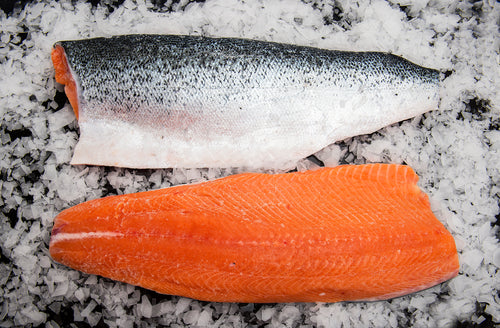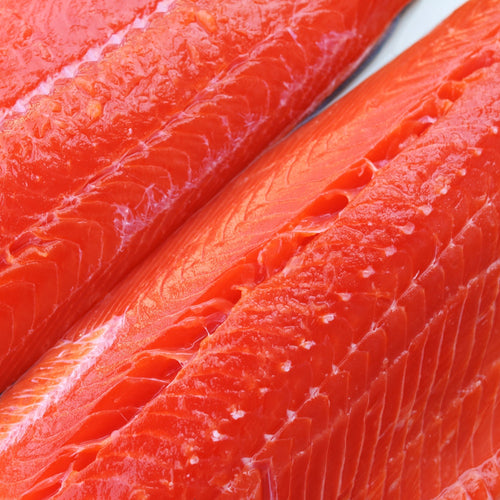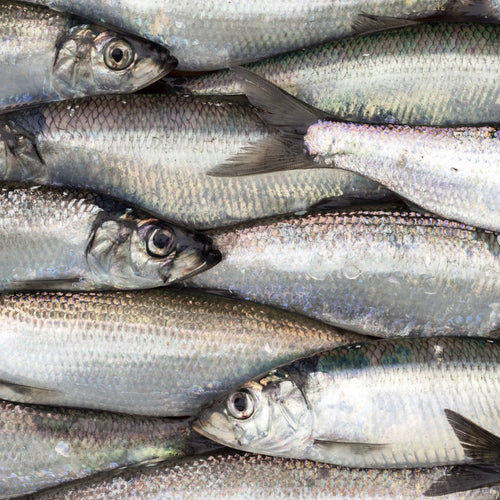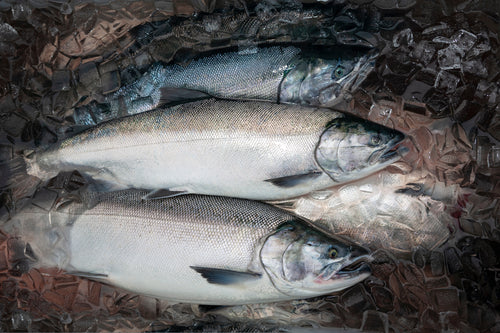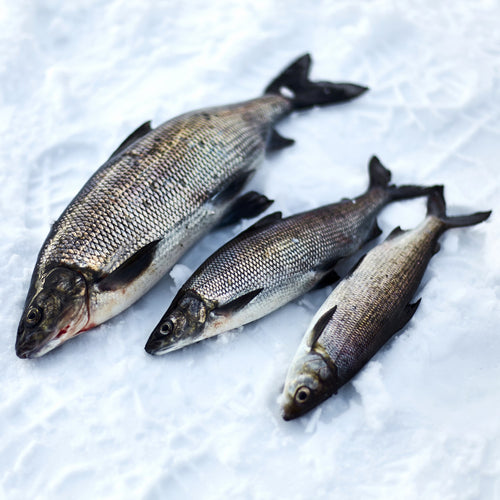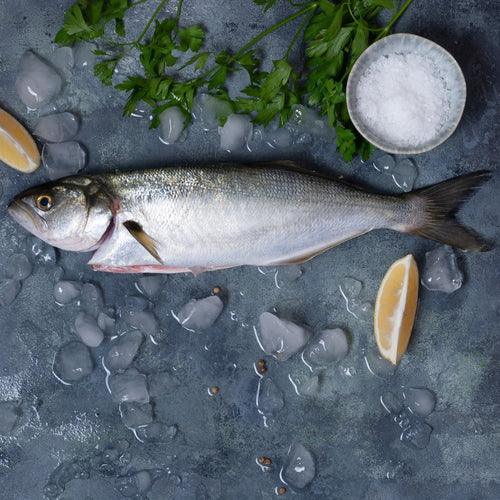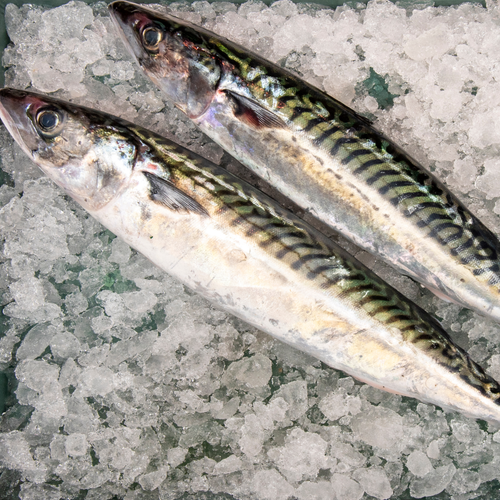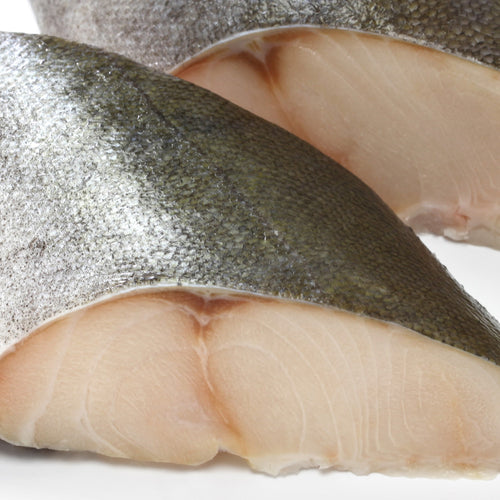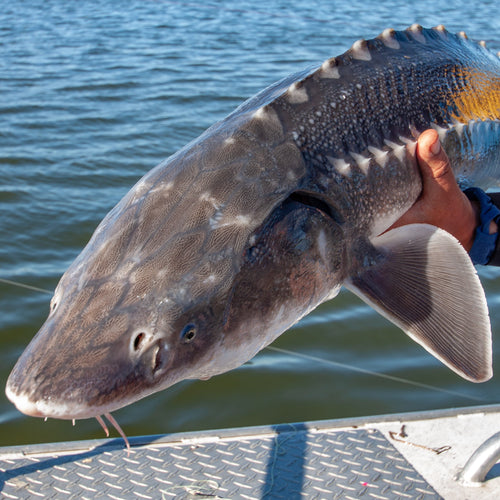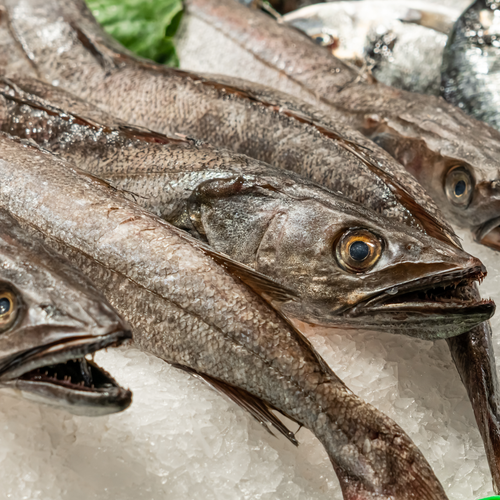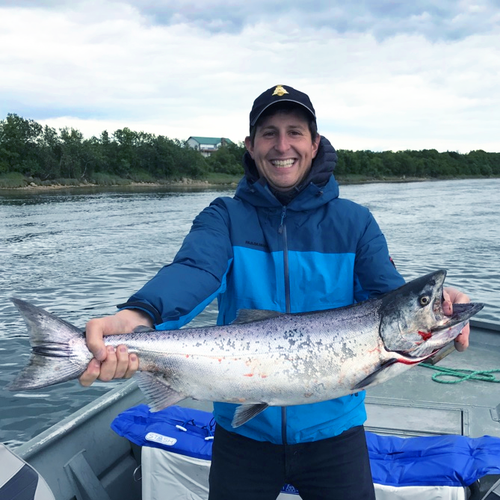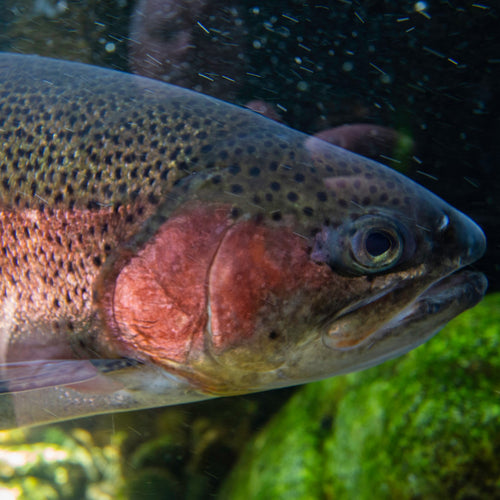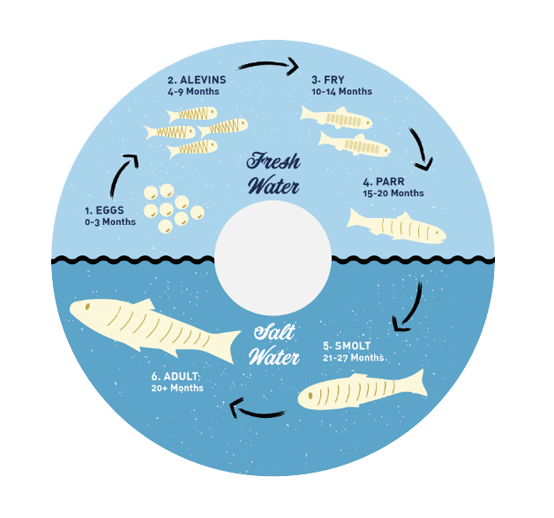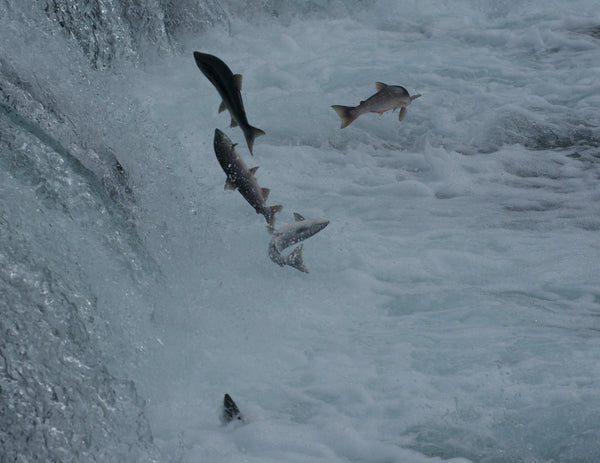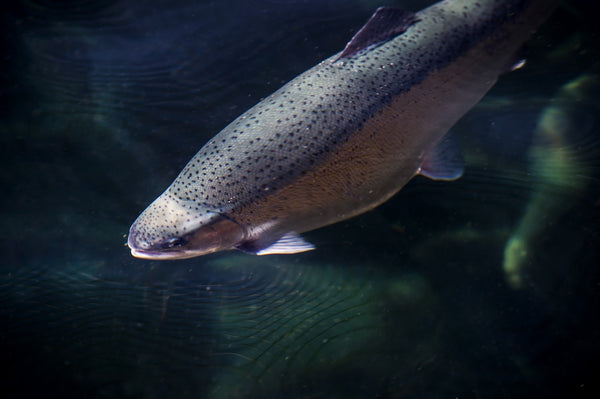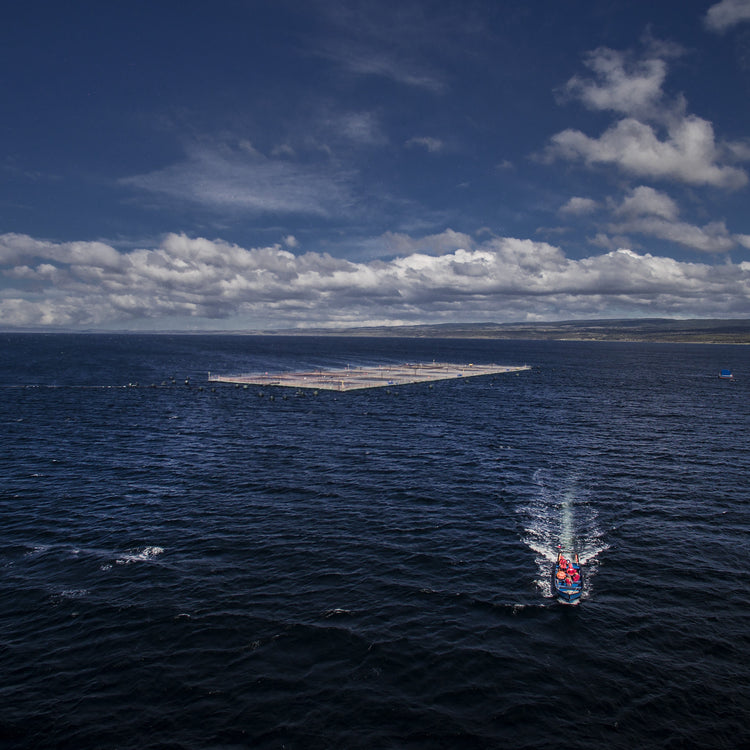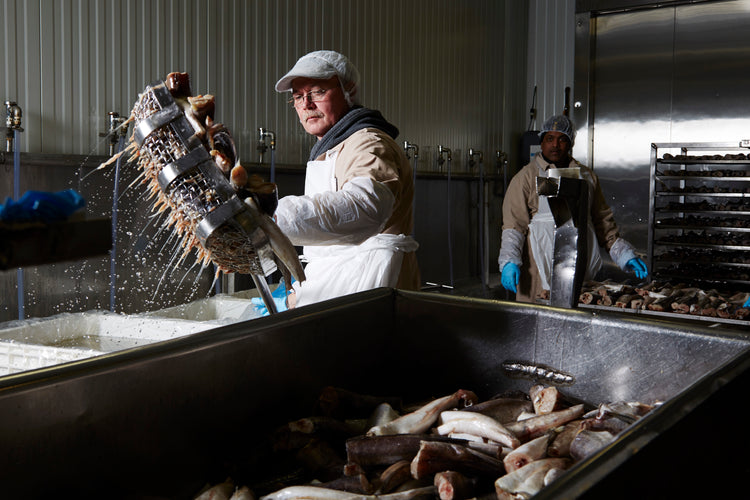For wild salmon, life begins with death. Adults return to the freshwater rivers of their youth, spawn, and die. Their eggs hatch as alevin, which feed on their yolk sacs as they mature into fry—evading predators with parr, markings that serve as camouflage. As they move from freshwater to saltwater, the fish smolt, growing silvery scales as they venture further into the sea. After 1 to 8 years, they return to the streams where they were born, spawn, lay eggs, and continue the cycle. The environment is more controlled for farmed salmon, which leads to a more robust food source.
Smoked Fish 101
Our Fish
It’s simple, really. Without the freshest raw materials, there’s no way to craft the finest smoked fish. That’s why we’re obsessed with sourcing the best.

